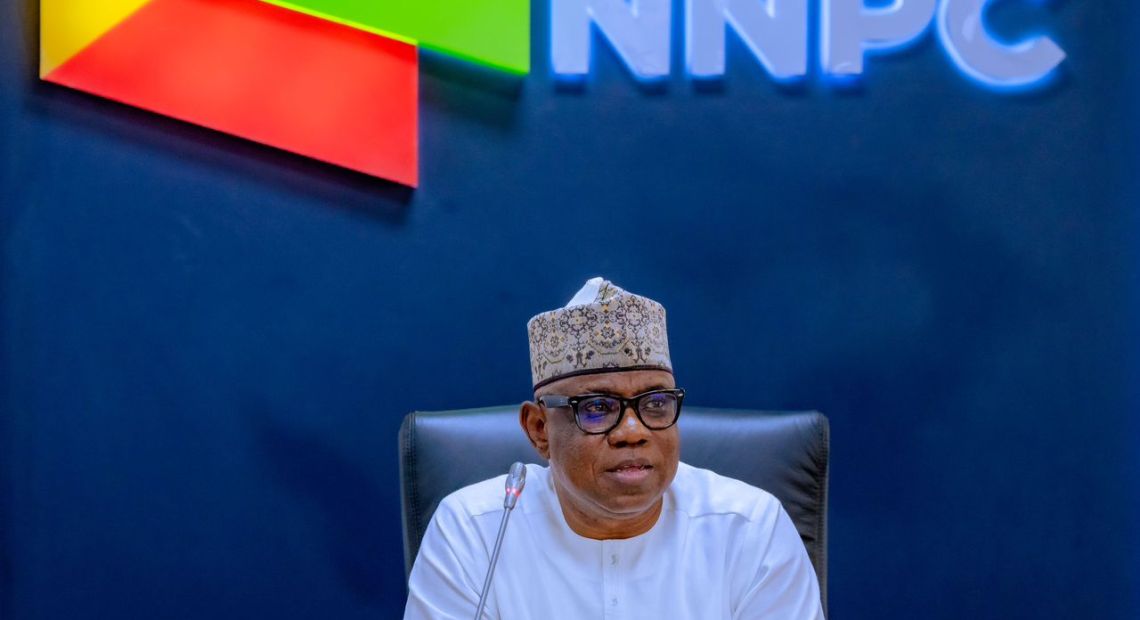Bayo Ojulari Reforming Nigeria Energy Future

By Abiodun A Oleolo
When Bayo Ojulari assumed leadership of the Nigerian National Petroleum Company (NNPC) Limited in April 2025, he inherited more than a corporation. He stepped into a storm defined by falling oil production, chronic revenue leakages, dwindling investor confidence, and the mounting global pressures of energy transition and geopolitical competition. Six months later, the story of NNPC and Nigeria’s energy sector has begun to change.
Ojulari’s leadership has been marked by an insistence on transparency, fiscal discipline, and operational accountability. Unlike previous reform attempts that often remained trapped in rhetoric, his approach has been anchored on execution and measurable outcomes. This shift fits squarely within President Bola Ahmed Tinubu’s Renewed Hope Agenda, which prioritizes energy independence, foreign investment, domestic refining, and Nigeria’s long-term net-zero ambitions. Reform, in Ojulari’s hands, is no longer an aspiration, it is a working reality.
Daily oil production rebounded from 1.485 million barrels in April to 1.71 million in July, crossing the 1.8 million barrel mark for the first time since late 2024. In the same period, NNPC generated ₦20.9 trillion while halting costly refinery losses that had drained up to ₦500 million monthly.
Operational efficiency has improved, with 100 percent pipeline availability, natural gas production climbing to 7.72 billion cubic feet per day, and major projects like the AKK and OB3 pipelines now nearing completion. Security reforms have also delivered dramatic results, with coordinated efforts nearly eliminating pipeline theft. Perhaps most notably, Ojulari introduced monthly financial reporting for the first time, signaling unprecedented transparency to investors, regulators, and the Nigerian public.
These gains are not just domestic achievements. By surpassing Angola and Libya in production, Nigeria has reclaimed its position as Africa’s largest oil producer, restoring both its credibility and its leverage in OPEC+ negotiations. In a volatile global energy market where reliability is everything, Nigeria is once again being seen as a dependable player, a factor that has begun to restore investor confidence and strengthen its geopolitical standing.
Yet Ojulari’s strategy is not confined to oil alone. He has placed sustainability and transition at the heart of NNPC’s future. Gas is being positioned as a critical bridge fuel, powering local industries, reducing emissions, and boosting LNG exports. At the same time, the company is advancing renewable energy pilots, reducing gas flaring, and exploring carbon-capture initiatives; all of which signal a shift toward greener operations. These efforts align NNPC with global environmental, social, and governance standards, positioning it to meet the expectations of modern investors.
Technology is another pillar of the transformation. Under Ojulari, the company has deployed AI-driven analytics to optimize production and minimize downtime, blockchain platforms to ensure revenue and supply chain traceability, and automation to enhance safety and efficiency. These moves bring NNPC closer to the practices of global energy giants like Saudi Aramco, ADNOC, and Petrobras, underscoring its ambition to compete at the highest levels.
The reforms are also resonating beyond corporate boardrooms.
Inside NNPC, employees are experiencing a new merit-driven culture that rewards performance. Across the wider economy, Nigerian small and medium enterprises are finding expanded opportunities in the energy supply chain. In host communities, improved security and reduced oil theft are strengthening peace and trust. And nationally, stronger revenues are bolstering the budget and foreign reserves at a time when fiscal stability is sorely needed.
Ojulari is quick to acknowledge that the journey has only just begun. Scaling production to two million barrels per day by 2027 will require unwavering discipline, relentless efficiency, and an estimated $60 billion in new investment. Completing critical gas infrastructure remains central to unlocking regional integration and expanding Nigeria’s role in global gas markets. The competition will not stand still either, as Angola and Libya push to reclaim lost ground. But Ojulari’s vision is clear: NNPC must set a new benchmark for African energy companies and emerge as a global player of repute.
The first six months of his leadership have already marked a decisive break from the past. Production recovery, record revenues, operational discipline, and world-class transparency demonstrate that Nigeria’s energy sector is capable of reform and resilience when leadership is committed to delivery. The challenge now is to institutionalize these gains and ensure that momentum is not lost. For Nigeria, the choice is stark: to entrench excellence as the new standard, or risk sliding back into inefficiency and missed opportunity.
The opportunity is global. Above all, the momentum must not be lost.
Happy Independence Day Nigeria!
Oleolo is a Business Analyst based in London, United Kingdom








